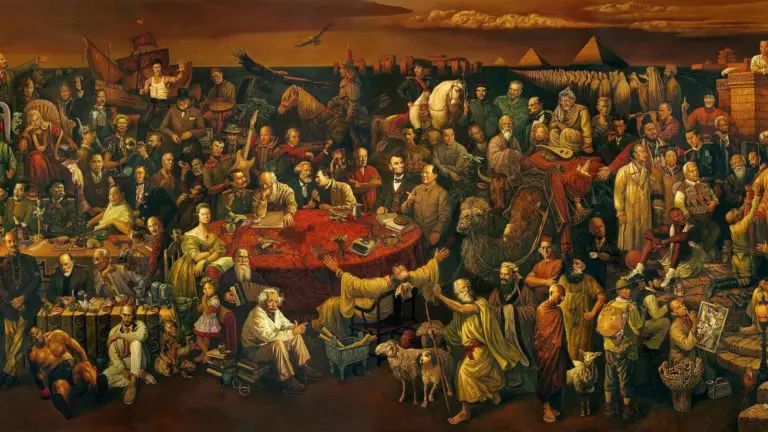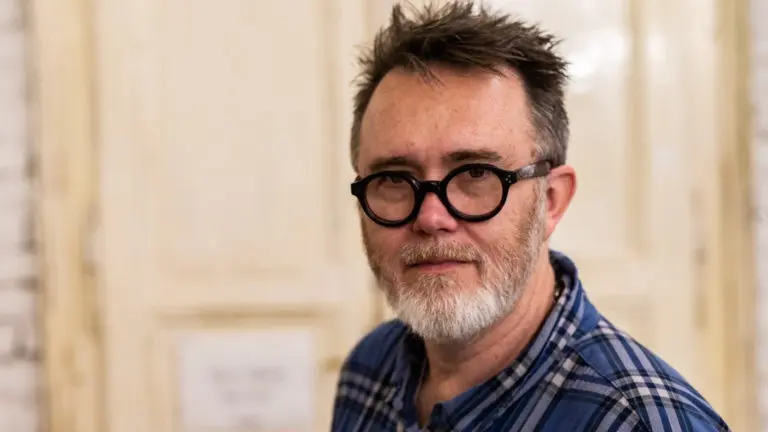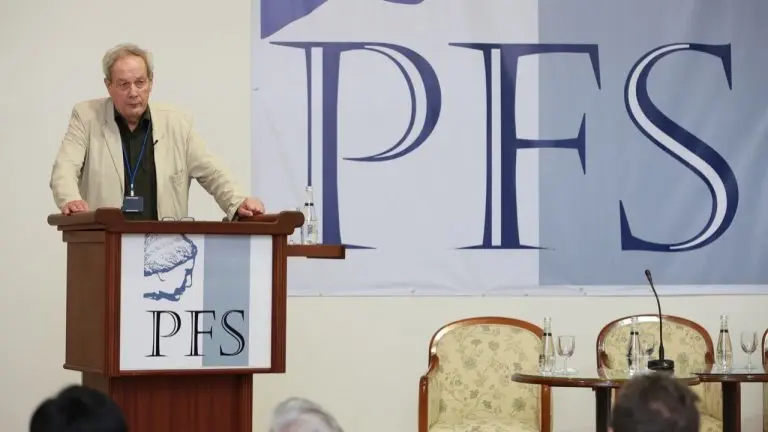Much has been written since the lockdowns about the nexus between homelessness, mental illness, and crime in American cities. One needn’t have been assaulted over the last three years to take notice—though in my case, being assaulted gave me an opportunity to query law enforcement, prosecutors, and those who run charities that serve the homeless, mentally ill, and those with behavioral health or addiction issues. While I was unharmed, the assailant subsequently attacked and injured two uniformed police officers.
It was exceptionally cold in Washington, D.C. that week, which drove up the number of homeless and mentally ill inside metro stations and on trains. On a metro ride I jotted down a note about “the pitiable mad of D.C. … poor souls wandering around like the macabre specters of a Hieronymus Bosch painting.” There had been a murder on a New York train platform days before. So my minor incident was hardly unforeseeable.
At the sentencing of the assailant, the officers’ victim impact statements were read into the record by the prosecution. The officers said they understood that police officers are widely believed to be malign actors today, but they truly did their best to look out for the homeless, and that the accused was known to be violent. The prosecution recommended ninety days, but the judge, noting that the perpetrator only seemed to be a threat when off his medication, simply implored him to take his medication and reduced his sentence.
Afterward, I asked several officers involved in the case and other law enforcement about causal links between the pandemic, the lockdowns, and the spikes in homelessness and crime, but none had any definite theories. Nor did prosecutors seem to know.
Months later, I spoke with Bill Meadowcroft, the chief operating officer at Portland Rescue Mission in Oregon. He explained that the pandemic lockdowns and shelter in place mandates significantly reduced the service capacity of both publicly- and privately-funded nonprofits. People suffering from homelessness, behavioral health issues, and addiction have often ended up in their pitiable conditions because they stopped taking medication, lost their connection to local community, and gravitated to the streets and to cities—dislocated, unstable, and at times inclined to violence.
Jeremy Beer, CEO of AmPhil (formerly American Philanthropic), a consulting firm for nonprofits, said the lockdowns and other measures taken in response to the COVID-19 pandemic forced their “human-services clients to discontinue or radically scale back numerous support programs aimed at the mentally ill and the homeless,” either prohibiting such services directly or discouraging volunteers.
Data measuring the social impact of the lockdowns will be analyzed for decades, but preliminary studies like that of the Kaiser Family Foundation reveal a significant toll on mental health. Lockdowns, social isolation, income reduction, and job loss were followed by increased depression and anxiety, sharp rises in drug and alcohol related deaths, and suicide attempts. (The CDC reported that adolescent suicide attempts rose by nearly forty percent from 2019 to 2021.) Violent crime of all kinds spiked during the pandemic as well; homicides in 2022 remained 34% higher than in 2019.
Most federal, state, and local governments stopped collecting data in 2020 and 2021, though increases in homelessness have been widely reported nationwide since the pandemic, especially in cities. Obtaining accurate data on unsheltered homeless was a struggle even before the pandemic. During the pandemic, Congress poured billions into shelter for the homeless in “noncongregate settings,” meaning hotels and motels, thereby reducing the official number of unsheltered homeless. This was not, however, a permanent fix and merely served to incentivize isolation and dislocation among the mentally ill and homeless.
Despite talk of the pandemic being ‘unprecedented,’ at least one dimension of the lockdowns did have precedent. When the British monarchy closed monasteries and religious houses following passage of the Act of Supremacy in the sixteenth century, many who had for centuries been cared for by those religious communities—the mentally ill, indigent, alcoholics, and others—were suddenly homeless. The homeless wandered Britain, frequently gravitating to cities, with no one to care for them. It was an unintended consequence of the Reformation in England and elsewhere. Parliament responded to this social crisis by passing the Poor Laws, Tudor-era legislation that effectively supplanted the charitable work of the institutional Church with state administration of theretofore non-state charitable services.
Christ commanded his followers to render separately unto God and Caesar, a revolutionary notion to pagan gentiles, for whom polity (state) and religion were united in a single totality. The early centuries of Christianity saw the creation of a new sphere in which charitable institutions affiliated with the Church but independent of the state flourished. Across Reformation Europe, however, the sphere created by the early and medieval Church—what Augustine called the City of God, a domain that had been dominated by Caesar, and after the Reformation, merged into what we today call civil society—was gradually reabsorbed by the emerging modern state. Social welfare programs became the prerogative of governments. In the centuries that followed, institutional Christianity in Europe increasingly found itself subordinate to the state; the state, for its part, gradually reclaimed for itself the religious, cultural, and social terrain ceded to Christianity by late antiquity. The modern state thus reestablished the pagan unity of polity and religion.
It was America that recreated the sphere of civil society in which Christian institutions once thrived in Europe but had since come to be dominated by the state—Europe where churches, increasingly dependent on state beneficence, became subject to its demands. This American achievement was due in part to religious pluralism, in part to America’s frontier society preceding state institutions, in part to a strong Judeo-Christian mission ethos among Anglo-American Protestants. The largely stateless continent offered alternatives to simply replicating what then existed in Europe.
Civil society in America became so radically different as to be without parallel: indeed, Americans donate nearly half a trillion dollars each year to private nonprofits, making charitable giving in the U.S. in the top quintile of economies in the world by GDP. As Ernest Gellner, Russell Hittinger, and others have noted, civil society, rather than democracy, is the distinct achievement of the West.
It is civil society that makes America exceptional. But the harm done to civil society and charitable institutions in America during the lockdowns was profound. It will take years, if not decades, for civil society—a sphere that ought to be thoroughly independent of the state in order to operate freely and authentically—to reclaim its preeminence in American life. Christian and other non-state institutions never recovered from the intrusions by Caesar in post-Reformation Europe, likely a substantial reason that Christianity there is dying.
Those who believe that the state is competent to be the principal caretaker of the homeless, the mentally ill, or the poor might ask the urban homeless how they got there or trying to get their social security payments resumed. Try to connect a single person to someone at the agency or agencies that claim to serve them. The process is maddening, and thus illuminating. Even if the lockdowns were undertaken by benign officials with the best of intentions—a dangerously naïve assumption—it should now be clear that the costs far outweigh any benefit.
Emergency humanitarian activities by national, state, and local governments are sometimes necessary, but they should be the exception rather than the rule: hard cases, as the saying goes, make bad law. It’s the proper role and nature of civil society, not the state, to provide charitable services—anyway Christians ought to believe this to be the case. After all, the Sermon on the Mount wasn’t a policy platform for governments but an injunction for persons. Communities should be mindful of what’s at stake when the next emergency is, inevitably, used as a pretext to arrogate power to the state at the expense of private institutions and persons.





